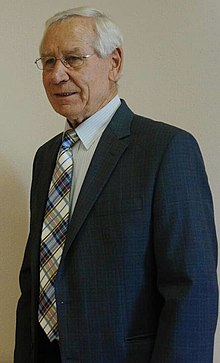
Robbing the poor to pay the rich

By Nico Smit
Treasurer General: Popular Democratic Movement (PDM)
In the light of the extreme secrecy surrounding the real facts about the hidden agenda behind the establishment and collapse of the SME Bank and the fact that it seems that the amount of money lost far exceeds the N$200 million which is public knowledge.
The PDM demands that the liquidators make a full disclosure, telling the public what the true extent of the losses is – according to our sources more than one billion Namibian dollars – and that they publish a full list of every investor who has been affected by the bank’s closure.
In the Year of Accountability, it is vital that the failure of SME Bank must be investigated fully and those responsible be held liable before the law. The PDM believes that the real perpetrators of this whole SME Bank scheme must be finally exposed and it must be made clear that it was the brain child of the minister of Trade and Industry at the time¸ namely our current president, His Excellency Hage Geingob and his tainted Zimbabwean collaborators.
There is overwhelming evidence that senior government officials are implicated in the serious conflict of interest which extended to the bank’s management. We, as the Namibian electorate, demand that the reasons for the bank’s failure be made public, that all ordinary Namibians who lost their savings are refunded, and that both the bank’s management and board be held criminally liable.
All the hidden agendas of high-ranking government officials must be exposed and the public must be warned to avoid any financial institution where there is a demonstrable involvement of politicians.
The damage done to a disproportionately large number of Namibians is irreparable. Many small businesses lost a substantial amount of money forcing many who needed financing most, the SME owners, to abandon their businesses. Referring all enquiries to the liquidators is of no use. It does not change the fact that money was robbed from poor people to benefit the rich elite who used their political connections to con unsuspecting people into depositing their funds in a financial institution which they thought was above board.
It strikes us as very suspicious that the Namibian SME Bank scheme has so many similarities to the VSB Bank scheme that recently caused such chaos among poor depositors in Limpopo in South Africa. Both these banks received large deposits from government institutions; both operated a kind of ponzi scheme that finally led to the wholesale looting of the bank’s assets by a chosen elite. And it seems clear that there was collusion between the elites of the two ruling parties in Namibia and South Africa who established these banking schemes, namely SWAPO and the ANC. Our information further indicates that a large part of the SME Bank’s funds went to the VSB Bank in Limpopo, South Africa.
As a political party who represents the people, the PDM wants to put it on record that SME funding is such a paramount issue that it must be brought into the public domain. The source of funding must be transparent, the management of funds must be transparent, and the beneficiaries must be transparent.
To ensure that this crime is never repeated, the PDM offers a series of interventions as rehabilitation. The PDM proposes that a national SME fund is established as a Public Private Partnership between all financial institutions, willing investors, and the Ministry of Finance. This fund must serve as the source for all SME funding and simultaneously serve as a sign of social responsibility.
In addition, the PDM proposes that such fund must be administered by the Development Bank of Namibia in a separate division with a Head of Department taking full responsibility for his or her own actions as well as the staff’s conduct. This department must be accountable to the Development Bank’s leadership directly and indirectly to its Board. Its functions must encompass all aspects of SME-funding and fund administration at a level much more advanced than the bank’s current SME business centre, which was only a crisis response to the SME Bank’s failure.
The PDM advises the Ministry of Finance to remove SME funding oversight from the domain of the Banking Institutions Act and to place its administration solely under the control of the Development Bank of Namibia Act as amended.
The PDM explicitly warns the government not to repeat its failed tactic of founding just another institution, burdened by an over-paid incompetent management and a completely uninformed Board.
The SME fund department in the Development Bank of Namibia must conform to all international standards of governance, transparency, accountability, and most important, sustainability. For this reason, SME funding must be removed from the sphere of commercial banking, and protected against government interference, political expedience and connected persons who are only too eager to enrich themselves regardless of the sacrifices ordinary, and in most cases, poor Namibians must make.
In a further step to improve the chances of success for SMEs, the PDM proposes that several enablers are put in place with unrestricted access and benefit to SME owners. The party advocate for cheap broadband services, cheap electricity for SME manufacturing enterprises, cheap legal services, and access to funding well below market rates applicable to other commercial enterprises. All these things will be possible with the establishment of the proposed National SME Fund.
It is deplorable that the institution that was supposed to achieve these small but important gains for SME owners was revealed as controlled by personal interests, corruption and outright criminality. The SME Bank’s management operated the institution like a cash loan business, exploiting innocent people, and eventually defrauding them. According to the response the PDM received from its constituencies, the damage has affected tens of thousands of poor Namibians.
Essentially, the SME Bank has robbed Namibians of their futures and their future incomes. Closely involved individuals have benefited at the cost of those who can least afford it. The PDM wants full disclosure of every individual who was involved during the planning and commissioning phase, of all shareholders, of all board members, and of all senior managers.
Every Namibian who wants to generate his or her own income, take care of their families, and strive to start a small business, must be empowered to do so. The PDM has gone beyond political rhetoric, offering concrete interventions as listed above, and demanding adequate checks and balances to protect the interests of SME owners.
In the Year of Accountability, we demand that every person who undermined the SME sector must be brought to book. Corruption must be rooted out, not only on paper and by lip-service, but all its elements must be eradicated visibly, to be seen, observed and witnessed by those who were harmed by the SME Bank’s failure.
Putting a lid on the unwinding of the SME Bank, only confirms what thousands of Namibians suspect: Harambee is not for the people, it is for the rich elite who will continue to drive their own hidden agendas, and squash ordinary Namibians to achieve their goals.












































